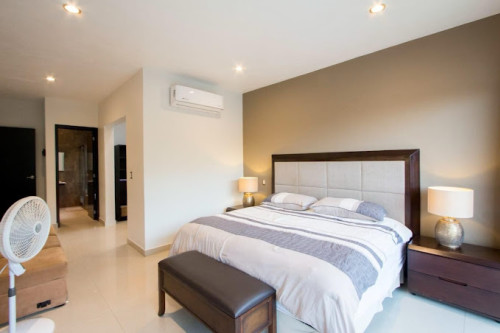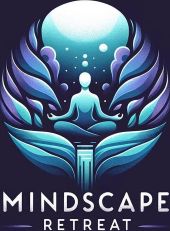






MindScape Retreat: Ibogaine Treatment Center
Treatment Focus
This center treats substance use disorders and mental health conditions. You'll receive individualized care catered to your unique situation and diagnosis, learn practical skills for recovery, and make new connections in a restorative environment.
Primary Level of Care
Offers a structured, immersive environment for intensive healing and personal growth, combining therapy, wellness activities, and peer support in a peaceful, distraction-free setting
Claimed
Recovery.com has connected directly with this treatment provider to validate the information in their profile.
Treatment Focus
This center treats substance use disorders and mental health conditions. You'll receive individualized care catered to your unique situation and diagnosis, learn practical skills for recovery, and make new connections in a restorative environment.
Primary Level of Care
Offers a structured, immersive environment for intensive healing and personal growth, combining therapy, wellness activities, and peer support in a peaceful, distraction-free setting
Private Pay
You pay directly for treatment out of pocket. This approach can offer enhanced privacy and flexibility, without involving insurance. Exact costs vary based on program and length of stay. Contact the center for specific details.
MindScape Retreat: Ibogaine Treatment Center
MindScape Retreat: Ibogaine Treatment Center
About MindScape Retreat: Ibogaine Treatment Center
Mindscape Retreat offers a comprehensive, evidence-based approach to substance use and mental health recovery in a serene and supportive setting. Combining personalized care, group therapy, and innovative treatments, the retreat is designed to address conditions like post traumatic stress disorder (PTSD), Parkinson's, depression, substance use disorders, traumatic brain injury (TBI), and SSRI dependency. With luxurious accommodations, holistic therapies, and psychedelic-assisted treatment options, Mindscape strives to create an environment where clients can achieve meaningful, lasting recovery.
Personalized Care and Group Support
At Mindscape Retreat, clients engage in a blend of personalized therapy and group support, creating a balanced and effective recovery experience. Each client starts with an in-depth assessment to develop a customized treatment plan targeting their unique challenges and goals. One-on-one therapy focuses on personal growth, trauma healing, and recovery milestones, while group sessions build community, empathy, and shared learning. Together, these approaches empower clients to practice and reinforce personal breakthroughs within a supportive network.
Innovative and Holistic Therapies
Mindscape offers advanced treatment options, including medically-supervised ibogaine and DMT-assisted therapy, for those seeking innovative approaches to recovery. Ibogaine treatment, known for its potential to interrupt addiction cycles, addresses both physical dependency and psychological factors. DMT-assisted therapy, using 5-MeO-DMT derived from the bufo alvarius toad, aims to facilitate profound emotional breakthroughs and promote healing. Evidence-based treatments such as cognitive-behavioral therapy (CBT), mindfulness practices, and holistic wellness activities like yoga, meditation, and nutritional support complement these treatment approaches.
Luxurious Accommodations and Aftercare
Mindscape Retreat’s tranquil environment includes upscale accommodations, private or semi-private rooms, chef-prepared meals, and amenities such as fitness centers, meditation spaces, and creative therapy areas. Clients can unwind and engage in wellness activities and beach excursions as part of their recovery experience. The retreat also emphasizes long-term success through a robust aftercare program, offering ongoing therapy, relapse prevention, alumni support, and telehealth options to help ensure clients remain supported on their recovery journey.

Center Overview
Treatment Focus
This center treats substance use disorders and mental health conditions. You'll receive individualized care catered to your unique situation and diagnosis, learn practical skills for recovery, and make new connections in a restorative environment.
Pricing and Program Length
Estimated Center Costs
The cost listed here ($7,500-$14,500), is an estimate of program cost. Center price can vary based on program and length of stay. Contact the center for more information. Recovery.com strives for price transparency so you can make an informed decision.
Luxury rehab centers offer a unique blend of luxurious amenities and high-quality treatment. From private suites to gourmet dining, personal trainers to spa treatments, these facilities provide a high level of comfort and discretion.

Levels of Care







Your Care Options
Specializations
Depression
Symptoms of depression may include fatigue, a sense of numbness, and loss of interest in activities. This condition can range from mild to severe.
Drug Addiction
Drug addiction is the excessive and repetitive use of substances, despite harmful consequences to a person's life, health, and relationships.
Ibogaine Treatment
Ibogaine, a psychedelic substance, can naturally reduce withdrawal discomforts and cravings, especially in those seeking treatment for opioid use.
Post Traumatic Stress Disorder
PTSD is a long-term mental health issue caused by a disturbing event or events. Symptoms include anxiety, dissociation, flashbacks, and intrusive thoughts.
Who We Treat
Men and Women
Men and women attend treatment for addiction in a co-ed setting, going to therapy groups together to share experiences, struggles, and successes.
Approaches
Evidence-Based
A combination of scientifically rooted therapies and treatments make up evidence-based care, defined by their measured and proven results.
Holistic
A non-medicinal, wellness-focused approach that aims to align the mind, body, and spirit for deep and lasting healing.
Individual Treatment
Individual care meets the needs of each patient, using personalized treatment to provide them the most relevant care and greatest chance of success.
Personalized Treatment
The specific needs, histories, and conditions of individual patients receive personalized, highly relevant care throughout their recovery journey.
Therapies
1-on-1 Counseling
Patient and therapist meet 1-on-1 to work through difficult emotions and behavioral challenges in a personal, private setting.
Meditation & Mindfulness
A practiced state of mind that brings patients to the present. It allows them to become fully aware of themselves, their feelings, and the present moment.
Eye Movement Therapy (EMDR)
Lateral, guided eye movements help reduce the emotional reactions of retelling and reprocessing trauma, allowing intense feelings to dissipate.
Family Therapy
Family therapy addresses group dynamics within a family system, with a focus on improving communication and interrupting unhealthy relationship patterns.
Ibogaine Treatment
Ibogaine, a psychedelic substance, can naturally reduce withdrawal discomforts and cravings, especially in those seeking treatment for opioid use.
Massage Therapy
Massage therapy relieves physical and emotional tension, reduces pain, promotes relaxation, and improves emotion regulation.
Medication-Assisted Treatment
Combined with behavioral therapy, prescribed medications can enhance treatment by relieving withdrawal symptoms and focus patients on their recovery.
Motivational Interviewing
Based on the idea that motivation to change comes from within, providers use a conversational framework to discover personalized methods for change.
Conditions We Treat
Bipolar
This mental health condition is characterized by extreme mood swings between depression, mania, and remission.
Depression
Symptoms of depression may include fatigue, a sense of numbness, and loss of interest in activities. This condition can range from mild to severe.
Post Traumatic Stress Disorder
PTSD is a long-term mental health issue caused by a disturbing event or events. Symptoms include anxiety, dissociation, flashbacks, and intrusive thoughts.
Trauma
Some traumatic events are so disturbing that they cause long-term mental health problems. Those ongoing issues can also be referred to as "trauma."
Substances We Treat
Alcohol
Using alcohol as a coping mechanism, or drinking excessively throughout the week, signals an alcohol use disorder.
Benzodiazepines
Benzodiazepines are prescribed to treat anxiety and sleep issues. They are highly habit forming, and their abuse can cause mood changes and poor judgement.
Co-Occurring Disorders
A person with multiple mental health diagnoses, such as addiction and depression, has co-occurring disorders also called dual diagnosis.
Cocaine
Cocaine is a stimulant with euphoric effects. Agitation, muscle ticks, psychosis, and heart issues are common symptoms of cocaine abuse.
Drug Addiction
Drug addiction is the excessive and repetitive use of substances, despite harmful consequences to a person's life, health, and relationships.
Heroin
Heroin is a highly addictive and illegal opioid. It can cause insomnia, collapsed veins, heart issues, and additional mental health issues.
Opioids
Opioids produce pain-relief and euphoria, which can lead to addiction. This class of drugs includes prescribed medication and the illegal drug heroin.
Prescription Drugs
It's possible to abuse any drug, even prescribed ones. If you crave a medication, or regularly take it more than directed, you may have an addiction.
Languages
Aftercare
Care Designed for Your Needs
Personal Amenities
Amenities
Special Considerations
Healthy Meals are provided
Great food meets great treatment, with providers serving healthy meals to restore nutrition, wellbeing, and health.
Activities
Yoga
Yoga is both a physical and spiritual practice. It includes a flow of movement, breathing techniques, and meditation.
Off-Site Activities
Off-Site Amenities
What people are saying
Treatment
4.3
Accommodations
4.3
Food & Nutrition
4.4
Value
4.4
Pros
- Excellent & Effective Treatment Programming (3)
- Friendly & Competent Staff (3)
- Gourmet & Nutritious Food (3)
- Personalized (3)
Cons
- Poor Internet Connection (2)
Frankie Cruz
Treatment in 2025 • (7 days) • Reviewed 01/28/26
Former Client
Anonymous
Treatment in 2025 • (7 days) • Reviewed 12/29/25
Former Client
Nate
Treatment in 2025 • (14 days) • Reviewed 04/15/25
Former Client
•Commercial Real Estate
Anonymous
Treatment in 2024 • (14 days) • Reviewed 02/14/25
Former Client
•California
S. E
Treatment in 2025 • (7 days) • Reviewed 01/28/26
Former Client
•Social worker
•California






